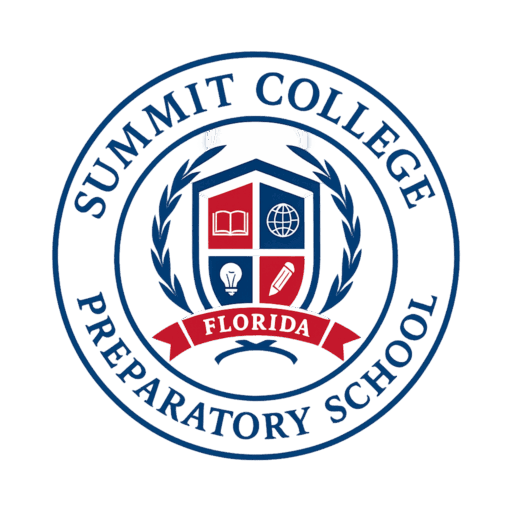English 9 (Honors)
Course Overview
English 9 Honors is a full-year advanced English Language Arts course designed for high-achieving 9th grade students. It emphasizes analytical thinking, sophisticated writing, literary depth, and preparation for future AP coursework. This course aligns with Florida B.E.S.T. Standards and integrates College Board readiness benchmarks.
Honors students engage in a rigorous curriculum of close reading, independent analysis, and structured debate. The course develops advanced skills in annotation, literary argument, and rhetorical analysis. Students explore global literature, classical texts, and diverse authors through themes such as power, identity, justice, and transformation.
Units include creative writing, formal essays, timed writing for SAT/AP-style prompts, and research-based projects. Regular Socratic seminars, peer review, and oral presentations ensure students build fluency across all domains of academic communication. This course sets the foundation for AP English Language & Literature pathways in grades 10–12.
Learning Outcomes by Quarter
- Quarter 1: Conduct close reading of complex texts, construct literary analysis, and write narrative essays with voice and detail.
- Quarter 2: Analyze poetry and rhetoric, craft original poems, and deliver oral commentaries.
- Quarter 3: Evaluate Shakespearean drama, write rhetorical analysis, and engage in argumentative writing.
- Quarter 4: Develop research questions, integrate sources, and deliver multimedia presentations with MLA documentation.
Instructional Methods
This honors course uses high-impact instructional strategies including Socratic seminars, analytical writing workshops, peer-led discussion, and project-based inquiry. Students complete independent reading, guided annotations, and multimedia research tasks. Instruction is differentiated and feedback is ongoing, supporting honors-level independence and growth.
Assessment and Grading
| Category | Weight |
|---|---|
| Major Essays & Projects | 40% |
| Tests & Quizzes | 20% |
| Socratic Seminars & Presentations | 15% |
| Journals & Homework | 15% |
| Participation & Leadership | 10% |
Anchor Text Justification
- Macbeth: Explores ambition, fate, and moral consequence in a complex dramatic structure. Ideal for rhetorical analysis and historical context discussion.
- Night by Elie Wiesel: A powerful memoir introducing historical nonfiction, ethical reflection, and personal narrative.
- Lord of the Flies: Provokes exploration of human nature, power structures, and symbolic motifs in a post-war context.
- Of Mice and Men: Offers emotional insight and character study of marginalized voices and the American Dream.
- Selected nonfiction & poetry: Supports critical reading, argument skills, and exposure to contemporary rhetorical models.
College Board – SAT Crosswalk
| College Board Domain | Integrated Skills in English 9 Honors |
|---|---|
| Command of Evidence | Textual analysis, source integration, annotations, research writing |
| Words in Context | Tier 2/3 vocabulary, diction studies, context decoding |
| Expression of Ideas | Structured argument, coherence, clarity, transitions |
| Standard English Conventions | Grammar mechanics, editing, syntax refinement |
Unit Overview
| Quarter | Unit Title | Florida B.E.S.T. Benchmarks | College Board Focus Skills |
|---|---|---|---|
| Q1 | Narrative Voice & Literary Archetypes | ELA.9.R.1.1, ELA.9.C.1.3 | Theme, symbolism, plot analysis |
| Q2 | Poetry, Memoir, and Rhetorical Purpose | ELA.9.R.2.1, ELA.9.R.2.4 | Personal voice, imagery, author’s intent |
| Q3 | Shakespeare & Persuasive Argument | ELA.9.R.3.3, ELA.9.C.3.1 | Rhetorical appeals, argument structure |
| Q4 | Research & Multimedia Expression | ELA.9.C.4.1, ELA.9.C.5.1 | Synthesis, citation, digital communication |
Academic Vocabulary Matrix
| Category | Key Terms | Contextual Application |
|---|---|---|
| Literary Analysis | Motif, Allusion, Tragic Flaw | Applied in drama and novel discussion |
| Rhetorical Strategies | Anaphora, Parallelism, Counterclaim | Used in argument writing and speech |
| Grammar & Usage | Subordination, Verbals, Syntax | Practiced through editing and writing models |
| Research Skills | MLA format, Parenthetical citation | Used in Q4 multimedia research essay |
